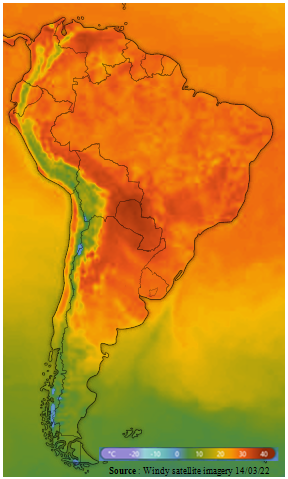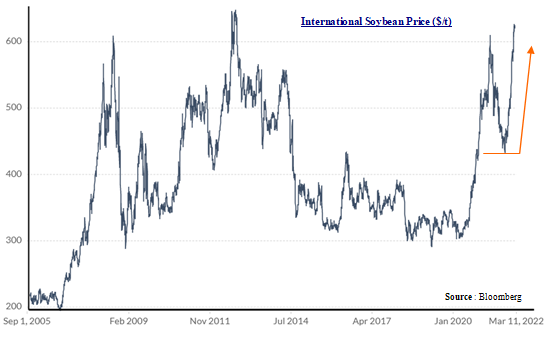Weather: Even if we are still facing very hot days, we have finally registered some rains. According to the latest weather forecast for March and April, more normalize conditions could begin but rainfalls will remain below normal parameters. The rice season is entering in is commercial stage and soon we will begin with the soybean harvest.

Rice: So far, we have harvested around 350 ha among our 560 ha sowed. Yield have improved in the latest plots sowed; we are now with a 6.6 t/ha yield (dry) with a very high quality for the latest block harvest (all above a purity index of 58).

We are pleased with those results as we were expecting lower yields as the plots suffered from water shortage due to the extreme drought we faced. However, the grains reached their physiological maturity as their humidity level is around 26%. Correct timing at harvest is essential to avoid losses incurred by harvesting too soon or too late. Immature grains harvested too early result in a high percentage of broken and low milling recovery, while if harvesting is delayed; the crop is exposed to insects, rodents and birds, in addition to the risks of lodging and shattering.

Local rice prices remain also attractive as market prices are above $240/t for standard quality (+14% above budgeted price). It is a small consolation because we were able to sow only 35% of our 1,638 ha rice area given the drought forecast. Price effect will not compensate for volume losses.

Soybean: By end of March, we are going to start the harvest of our 1,100 sowed. Around 300 ha have been affected by the drought and reduced our overall yield forecast from 2.5 t/ha to 1.5 t/ha. However, soybean price have recently boomed (>$600/t Vs $350/t budgeted) due to the Ukrainian situation and the impact of drought on the crop in South America. Price effect here compensates yield losses.

According to the country’s Ministry of Agriculture, Paraguay soybean processing production has decreased by almost 50% compared to the previous harvest cycle. The Paraguayan Chamber of Oilseeds and Cereals processors (Cappro) estimates that total production will decrease by 60% this year because of the lack of rain.

